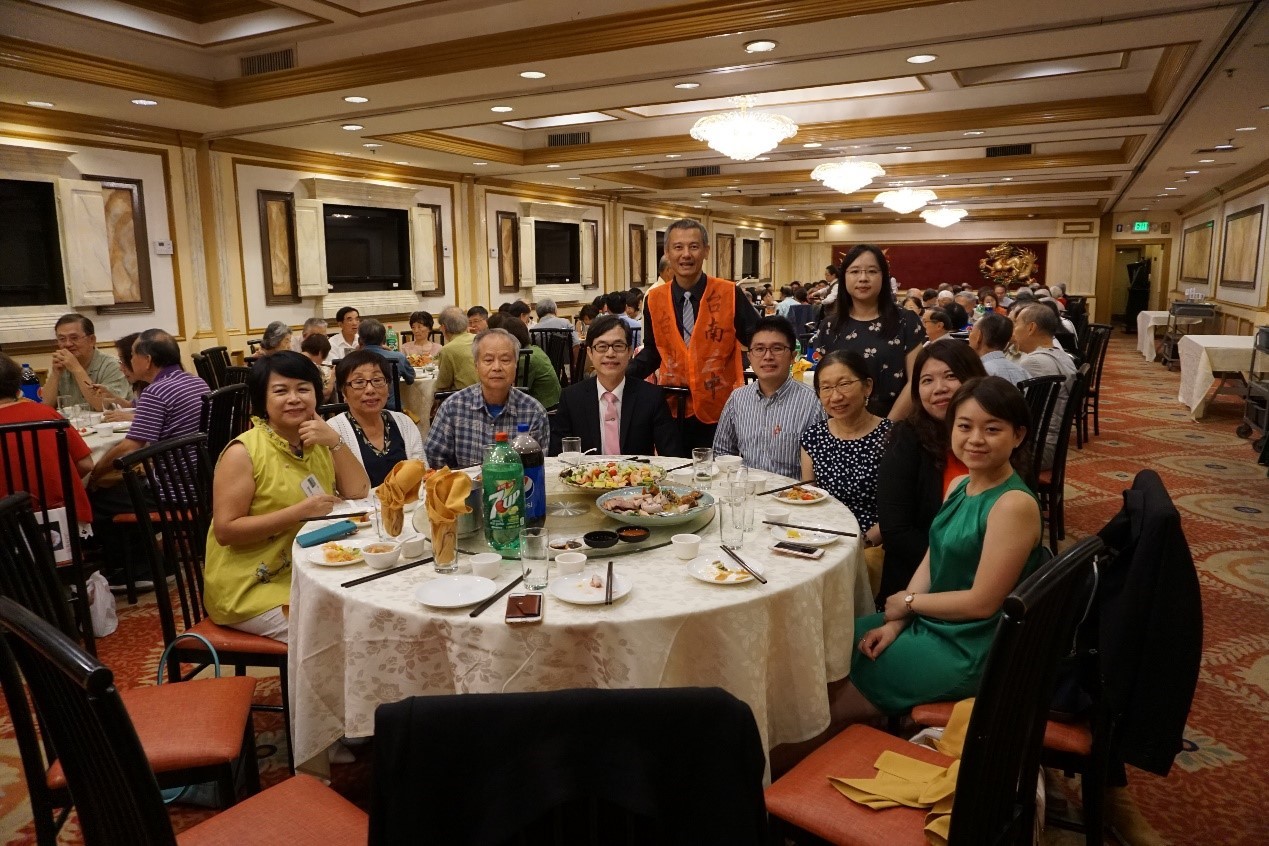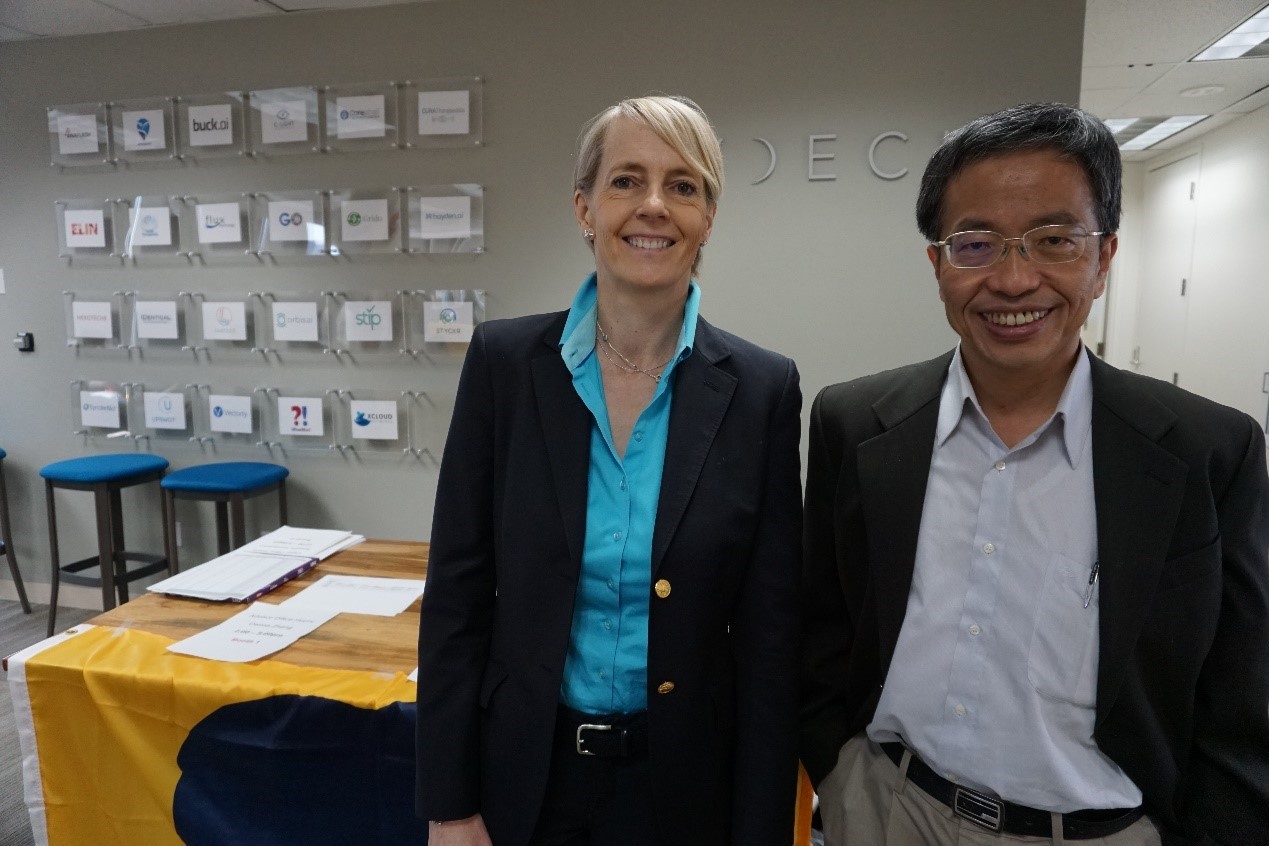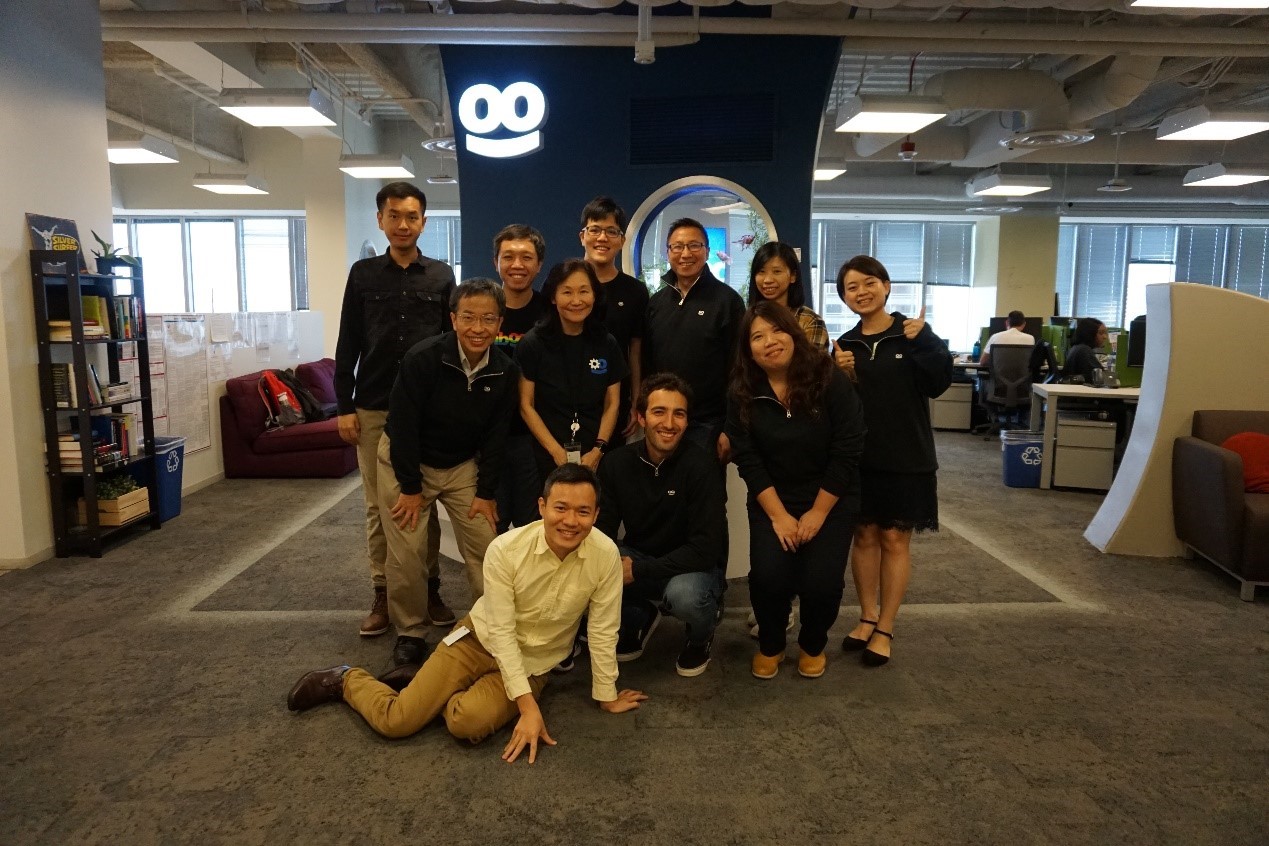
The LEAP Program is joined by major international corporations and start-ups with high potential in San Francisco and Los Angeles (LA), California, where a network of excellent connections and an industrial cluster have formed throughout the years. Silicon Valley has promoted leading-edge innovation and pioneering entrepreneurship, and LA has also become a start-up hotbed. More than forty percent of the venture capitals worldwide are based in Silicon Valley, cooperating with several accelerators in investing and expanding the client base. The support of top universities and renowned companies in the region further uplifts the development of start-ups.

The group met with the alumni of National Tainan First Senior High School and National Tainan Girl's Senior High School in LA to promote the LEAP Program
Dr. Yuh-Jzer Joung, the Director-General of STPI, led a group of LEAP Program staff to visit 12 training institutions in California and interviewed 16 trainees. The group met with the Taiwanese-American Chamber of Commerce of Greater Los Angeles, the Bay Area Taiwanese Biotech Association, and the Chinese Bioscience Association, as well as participated in four local partnering events, where they approached more than ten institutions which might be joining the program in the future. Besides, the LEAP Program met with the alumni of National Tainan First Senior High School and National Tainan Girl's Senior High School in LA and increased the visibility of the LEAP Program in the overseas Chinese community.

Dr. Yuh-Jzer Joung of STPI (right) and Caroline Winnett, the CEO of SkyDeck
During the trip, the group co-organized a forum with the Ministry of Science and Technology targeting those who joined UC Berkeley’s SkyDeck Accelerator Program. In order to explore further cooperation opportunities, the group also visited the Center for Advanced Study in the Behavioral Sciences of Stanford University, the Boeing Company in LA, and Singularity University.
During the interview, trainees with positive feedback from their training institutions were found to be proactive and friendly. They were keen to communicate and seek solutions whenever they encounter problems or difficulties. The training institutions which were highly recognized by the trainees are open-minded and flexible in adjusting their training according to the needs of the trainees. These institutions are willing to offer feedback and communicate with the trainees. For both the training institutions and the trainees in the program, direct communication is undoubtedly the most effective way of building an ideal environment for researching and learning.

The group led by Dr. Joung visited the trainees at Taboola